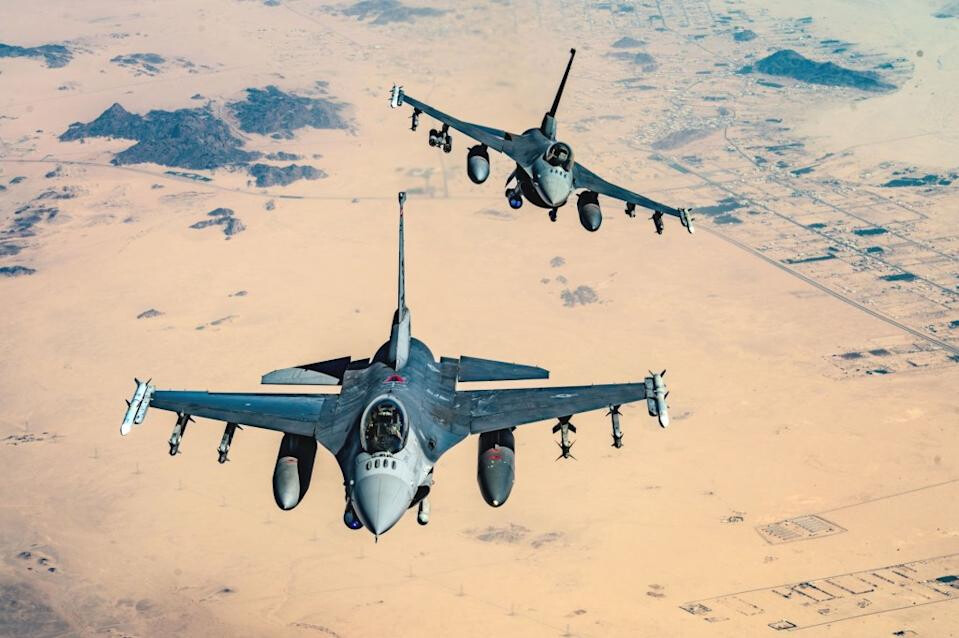
Asunción – Paraguay is facing controversy as it pushes forward with a bill that would allow the shooting down of aircraft posing a threat to national security. Congressman Rubén Rubin submitted a bill to the parliament that would authorize the Air Force to shoot down any aircraft threatening national security. This bill expands on the current Airspace Protection Law (No. 6980/2022) by adding a 'third stage' to the existing response procedures. This third stage would permit the shooting down of hostile aircraft as a last resort.
Currently, Paraguay's airspace protection law only permits the interception and warning shots against threatening aircraft. However, the proposed third stage stipulates that it would require presidential approval and could only be invoked if the aircraft poses an imminent and serious threat. Congressman Rubin stated that the bill was inspired by similar laws in Brazil and Colombia.
Congressman Rubin emphasized that the bill aims to "provide the Paraguayan Air Force with the necessary means to protect its airspace and national sovereignty," and particularly to "effectively respond to threats such as drug trafficking, arms dealing, and other illegal cross-border activities." The current law consists of two stages: "interception and visual identification" and "warning and threat firing." The proposed bill adds a third stage: "shooting down aircraft as a last resort."
However, the third-stage shoot-down measure can only proceed with the explicit approval of the President, who is the supreme commander of the armed forces, and only when all prior measures have been exhausted and there is "reasonable evidence" that the aircraft poses an imminent and serious threat.
Furthermore, the bill envisions the creation of a "Quadripartite Air and Border Defense Command (CCDAF)" to coordinate joint airspace surveillance and protection efforts between Paraguay, Brazil, Argentina, and Bolivia. This is seen as a significant step towards establishing a joint response system against illegal activities crossing borders and strengthening regional security cooperation.
The bill also includes the introduction of a rapid response protocol known as "Quick Reaction Alert (QRA)." This protocol aims to intercept aerial threats within a maximum of 15 minutes of their occurrence, and to reduce this time to 7 minutes in critical situations. This is interpreted as an intention to enhance the capacity for immediate response to unexpected aerial threats and further solidify national security.
The third-stage shoot-down targets defined in the bill include civilian or military aircraft, drones, and other manned or unmanned aerial vehicles. These aircraft become targets for being shot down if, after undergoing the first and second-stage interception procedures, they continue to pose an imminent and serious threat to national security, territorial integrity, or the lives of people in the air and on the ground.
This push for the bill can be interpreted as the Paraguayan government expressing a strong commitment to strengthening border control and eradicating illegal activities. Paraguay has been particularly identified as a major transit route for drug trafficking and illegal arms trade in the South American region, and the activities of these transnational criminal organizations are recognized as a serious threat to national security. Therefore, strengthening airspace defense capabilities and jointly responding to these threats through cooperation with neighboring countries is seen as an inevitable step.
However, the shooting down of aircraft raises significant ethical and legal concerns, including the possibility of misidentifying civilian aircraft, controversies over international law violations, and potential loss of life. Regulations from the International Civil Aviation Organization (ICAO) severely restrict the use of force against civilian aircraft, and it would be difficult to avoid international condemnation if civilians were harmed due to misidentification.
Some argue that other effective countermeasures should be explored first, besides shooting down aircraft. For example, strengthening radar systems, improving aerial surveillance capabilities, and introducing non-lethal weapons could be phased and prudent approaches to securing national security. Additionally, sharing information and conducting joint exercises with neighboring countries to enhance border surveillance and interception capabilities could also be considered.
It remains unclear whether this bill will pass the Paraguayan Congress. While there is a consensus on the need for shoot-down measures, in-depth discussions are expected on how to resolve the potential adverse effects and international controversies that may arise. In particular, although a safeguard of presidential approval has been put in place, concerns remain about whether swift and accurate judgment can be made in urgent situations.
The Paraguayan government likely intends to solidify national security and send a strong message to transnational criminal organizations through this bill. However, it also faces the task of dispelling international concerns and securing public consensus. In the future parliamentary debate, the strictness of the shoot-down requirements, measures to prevent misidentification, and compatibility with international law are expected to be major points of contention. The impact of Paraguay's initiative on strengthening border security cooperation in the South American region remains to be seen.
[Copyright (c) Global Economic Times. All Rights Reserved.]






























